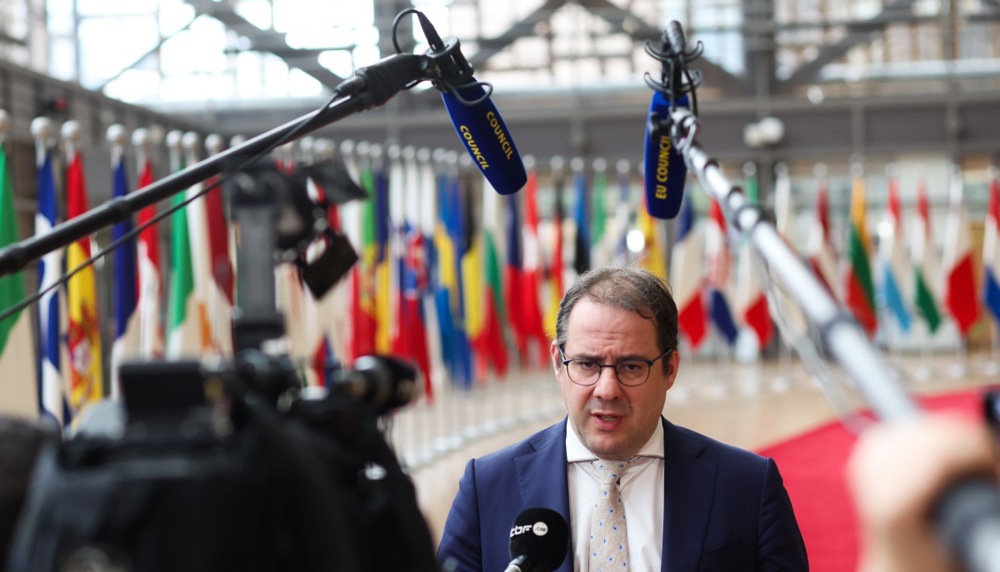As Chinese money and technology pour into Europe’s electric vehicle and battery industries, Brussels is torn. It wants the investment – but not the dependence. The EU needs China’s help to compete, yet fears giving up too much control.
“Foreign, in particular Chinese companies, help meet current EV capacity and cost gap in Europe, but they are creating lasting dependencies, so these investments are not neutral,” said Cecilia Trasi, a researcher at Brussels-based think tank Bruegel.
“Once built, our leverage to steer the outcome of these investments is narrowing.”
Trasi was speaking at a June 24 event hosted by Bruegel. Her remarks came just weeks before the EU-China summit in Beijing, where trade tensions were expected to take centre stage.
Bruegel analysts presented an assessment of Chinese EV-related investment into the EU, highlighting both economic necessity and strategic vulnerability. “Can we condition these investments for them to be aligned with our electric goals without security concerns?” Trasi asked.
A sharp visual trend underscored the dilemma; while total Chinese FDI into the EU has declined since 2018, its FDI into the EV sector has increased every year since 2019.

As a result, EV investment now accounted for a sharply growing share of China’s overall FDI in Europe.
On this topic, an EC spokesperson told Brussels Signal on June 26: “We value our economic and trade relationship with China – our second-largest trading partner in goods.
“However, China’s impressive rise must not come at the expense of the European economy. We are therefore committed to rebalancing this relationship … with symmetrical market opening. This is of crucial importance.”
The spokesperson added: “This includes addressing our differences, as the quality of our cooperation impacts not only our industries and our people but also the entire global economy.”
“This is not only about cars,” said Arthur Corbin, adviser in the cabinet of EU Executive Vice-President for Industrial Strategy Stéphane Séjourné.
“This is a strategic issue … representatives of every industry come to us saying they have the same problems as the automotive sector.”
Trasi did say that Chinese investment was helping Europe fill its EV production and affordability gap.
“Few European models sell below €30,000,” she said. “The average price is still above €50,000, while the Chinese offer models around €15,000.”
Chinese EV manufacturers including BYD and CATL were opening large facilities in Hungary and Spain. Trasi noted that the BYD site alone was “supposed to create 9,000 jobs,” and that “the idle Nissan site is supposed to be reactivated in Spain”.
Despite that, she warned: “European workers risk being stuck at the low-paid end of the supply chain, and the added value would be in China. This is not just theory – it happened in other sectors already.”
Her colleague Gregor Sebastian, co-author of the upcoming Bruegel policy briefing, stressed Europe’s limited tools: “The EU doesn’t have the power to regulate FDI – that lies with member states.”
He added: “A more pragmatic approach is needed … the challenge will be actually using the tools and in a co-ordinated way.”
The European Commission has introduced measures such as the Foreign Subsidies Regulation (FSR), with countervailing duties (CVDs) of up to 38 per cent on Chinese EVs.
Most recently, a new state aid framework (CISAF) enabled public support for clean-tech manufacturing and private investment de-risking.
CVDs, also known as anti-subsidy duties, were special tariffs imposed by an importing country on goods that have been subsidised by the exporting nation’s government. These duties aimed to offset the competitive advantage gained by the subsidised imports
Trasi said: “Yet questions remain about whether Brussels is acting with sufficient strategic clarity. Europe has instruments but is lacking a strategy.
“The upcoming EU-China summit in July makes a coherent, united approach urgent.”
Sebastian noted that China uses capital controls to direct outbound FDI, “telling its companies where it can and can’t invest.”
That, he said, could be triggered “if China perceives a threat to its companies.”
The deeper issue, according to Sebastian, was leverage: “If most of R&D is made in China, most of the money would be sent back to headquarters in China even if a part of production is outsourced.”
Corbin added: “It is extremely difficult to make business in China currently because Chinese companies are fighting fiercely to survive and that makes the prices low, and the Chinese state supports local players massively”.
As previously reported, the prices of Chinese products can be extremely low, not only due to subsidies but also the competitiveness structure of the industrial market in China.
“The tariffs [on Chinese EVs] are still in place and not supposed to go out – and they are having the desired impact, according to the Commission analysis.”
Still, he raised concerns about circumvention and highlighted batteries as an especially sensitive area. “Economically, we can’t let this go to other countries,” Corbin said.
Beyond tariffs, the EU was also navigating legal challenges. In January, the Chinese Chamber of Commerce to the EU published a statement noting: “EV makers in China, despite facing different tariff rates, are responding to what they view as the mounting pressure of punitive duties.”
The chamber warned that tariffs “risk stymieing the very transformation [the EU] seeks to achieve”.
It further argued that, despite the duties, Chinese EV exports to the EU increased significantly in December last year and called for “more open and cooperative trade relations.”
Separately, China has tied a potential cognac import deal to progress on EU EV tariffs, as reported by Reuters on June 27.
While France’s cognac makers have reached a tentative agreement on minimum import prices for the Chinese market, Beijing has said it would only finalise the deal if there was movement on the EV tariff front.
Talks have reportedly dragged on for months, during which time sales of cognac in China, the world’s most valuable market for the spirit, have fallen.
Meanwhile, European automotive giants including BMW and Volkswagen, heavily invested in Chinese production, have been caught between regulatory barriers and cost pressures.





